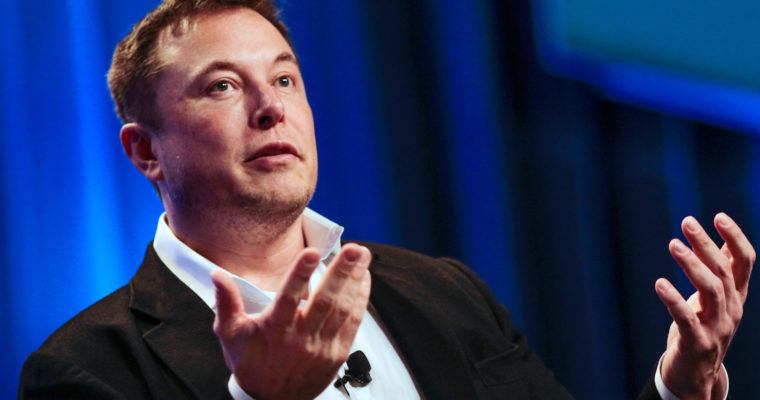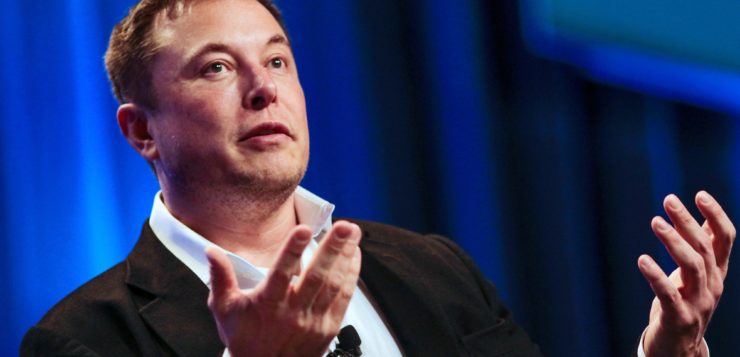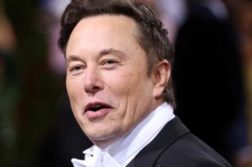
REUTERS/Kyle Grillot
Wealth equality has always been one of the major global macroeconomic objectives with various initiatives being recommended and employed by governments and multinational organizations to lessen the gap between the rich and the poor.
However, no one seems to be asking the primary question: should the rich be taxed more?
According to a recent report by charity organization Oxfam, the 26 wealthiest individuals in the world control the same wealth amassed by the bottom 50% of the world’s population. The same report showed that billionaires all over the world combined saw a $2.5 billion increase in fortune, on a daily basis, in 2018.
Inequality isn’t inevitable. It’s about choices. When governments choose to make tax fairer, invest in public services, & ensure fair wages for all, the gap between rich & poor can shrink – & the number of people in poverty can drop #FightInequality #WEF19 https://t.co/l1Zg7hjitE pic.twitter.com/ryPavHsf4D
— Oxfam (@oxfamgb) January 21, 2019
It ’s easy to chalk things like these up to profitability. Jeff Bezos, by far the world’s richest man, saw his net worth increase to $112 billion last year. In part, this was undoubtedly due to the increased profitability of Amazon, with the company- along with Apple Inc.- crossing the $1 trillion mark last year, albeit for just a short while.
Throwback Thursday: This Day In 1999, Time Magazine makes Amazon’s Jeff Bezos the “Person Of The Year.” Then worth an estimated $10 billion, Bezos is now the richest man in the world 19 years later, said to be worth more than $110 billon. pic.twitter.com/EOlDb69a5B
— Darren Rovell (@darrenrovell) December 28, 2018
Investments and the Progressive Tax
There are many reasons why the rich pay lower taxes than the poor. However, the most significant of these reasons is that they get lower tax rates on their capital investment gains.
The American tax rate has always been progressive, which means that the rich are, by default, supposed to pay more in taxes than the poor. However, the progressive tax employed by the American government covers income taxes.
In a bid to help circumvent this, most rich people take their wealth and invest them.
For instance, in addition to his stake in Microsoft, Bill Gates, with a personal net worth of $96 billion, is also heavily invested in Warren Buffett’s Berkshire Hathaway, FEMSA, Canadian National Railway TerraPower, Diageo and much more.
Elon Musk has also been known to divest his funds. Apart from his holdings at Tesla Inc., Musk also has investments in SpaceX, Neuralink, SolarCity, The Boring Company, and more, which adds up to an insane $21 billion net worth for the South African born entrepreneur.
Essentially, it means that while the tax system is progressive, these super wealthy individuals- who make the bulk of their income from investments and are supposed to bear heavier tax burdens- actually don’t have their primary income sources being taxed.
Freshman Representative Alexandria Ocasio-Cortez has been leading the charge for a hike in taxes for the wealthy, proposing a 70 percent tax rate on earnings above $10 million on a recent interview on CBS’ 60 Minutes.
Her comment has sent shivers down the spine of some billionaires at the ongoing World Economic Forum in Davos. Global Chief Investment Officer of billion dollars asset manager Guggenheim Partners, Scott Minerd, calls her plans “scary.”
Speaking at the ongoing Davos, Minerd said: “By the time we get to the presidential election, this is going to gain more momentum. And I think the likelihood that a 70 percent tax rate, or something like that, become policy is actually very real.”
Cortez sees herself as a Democratic-Socialist and while her age restricts her from joining the already crowded list of Democratic contenders gunning for the Presidency, 74 percent of Democratic-leaning adults say they would vote for her for President.
It’s wild that some people are more scared of a marginal tax rate than the fact that 40% of Americans struggle to pay for at least one basic need, like food or rent.
Imagine if we focused positively, away from fear of the former toward solving the latter.https://t.co/91SoKmhGxx
— Alexandria Ocasio-Cortez (@AOC) January 22, 2019
Billionaires Give Back. But How Do We Measure Their Efforts?
Gates has the Bill and Melinda Gates Foundation, which is pretty much involved in everything. The Musk Foundation is also involved in philanthropic work with renewable energy and pediatric research. Facebook CEO Mark Zuckerberg also pledged to donate 99% of his Facebook holdings along with Coinbase Founder and CEO, in what is known as the “Giving Pledge.”
The only problem with philanthropy is that the money being given away is done at the discretion of the wealthy. They determine how much is donated, which organization gets the money, and what the money is used for. Essentially, this means charitable donations end up going to things like art preservation and higher education. Not to slight the significance of these causes, but they seem more out of touch with what the poor and less privileged really need. Rather, the case can be made that if these wealthy people paid taxes, governments will spend it on priorities more related to social need and human services.
Still, it forces the question of whether the efforts of these billionaires to “give back” is sufficient, considering their innate desire to stay rich.
If they aren’t sufficient, then it’s high time they were compelled to part with more of their wealth.







